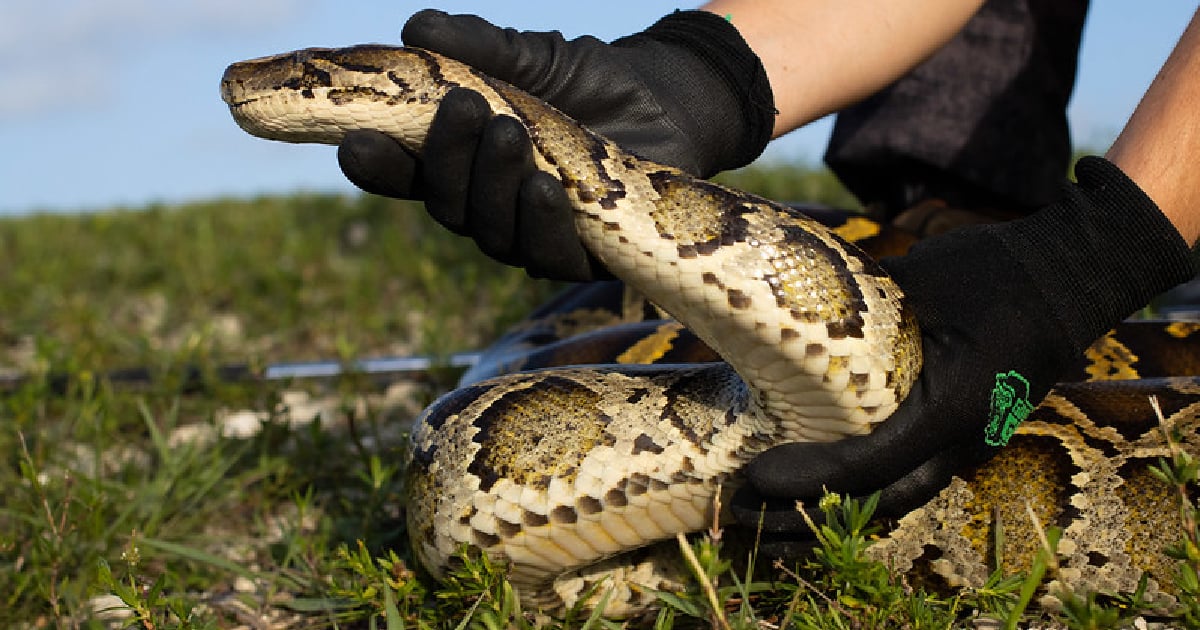
The winner of the Florida Python Challenge 2024 grand prize took home $10,000 for removing 20 Burmese pythons from the Everglades during this year's competition in the southern part of the state.
Ronald Kiger won the grand prize in the competition aimed at raising awareness about the threats posed by these pythons and other invasive species to Florida's ecosystem.
The Florida Fish and Wildlife Conservation Commission (FWC) announced this Tuesday the final results and winners of the contest that took place over 10 days in mid-August.
This year, 857 people from 33 states in the U.S. and Canada participated in the challenge, which aims to help conserve the Everglades, where they collectively removed 195 invasive Burmese pythons.
The remaining $25,000 in prizes was distributed among the winners of the three categories of the contest: novices, professionals, and military, for the longest pythons and the most pythons removed.
Donna Kalil almost tied with Kiger and won $2,500 for catching 19 pythons in the professional category, while Dennis Krum captured the longest python - 9 feet 11 inches (3 meters) - in the beginner category and also in the entire competition, earning $1,000.
“FWC contractors and the South Florida Water Management District have successfully removed over 14,000 pythons since 2017,” said Rodney Barreto, president of the FWC. “This collective effort continues to have a direct positive impact on the Everglades and our native wildlife through removal and awareness.”
The executive director of the FWC, Roger Young, thanked Florida Governor Ron DeSantis and the numerous partners who support the Florida Python Challenge each year "to raise awareness about the need to remove invasive Burmese pythons from Florida's environment."
Burmese pythons are not native to Florida and have a negative impact on native species, the wildlife agency's statement noted. They are primarily found in the Everglades ecosystem and its surroundings in South Florida, where they feed on birds, mammals, and other reptiles.
A female Burmese python can lay between 50 to 100 eggs at once. According to the FWC, more than 22,000 wild Burmese pythons have been removed from the state of Florida since 2000.
"In addition to the Florida Python Challenge, there are other ways people can continue to help control non-native species, such as Burmese pythons. Anyone can humanely remove and kill pythons and other non-native reptiles at any time on private lands with the owner's permission and on 32 sites managed by FWC across South Florida," the environmental organization's statement emphasized.
What do you think?
COMMENTFiled under: